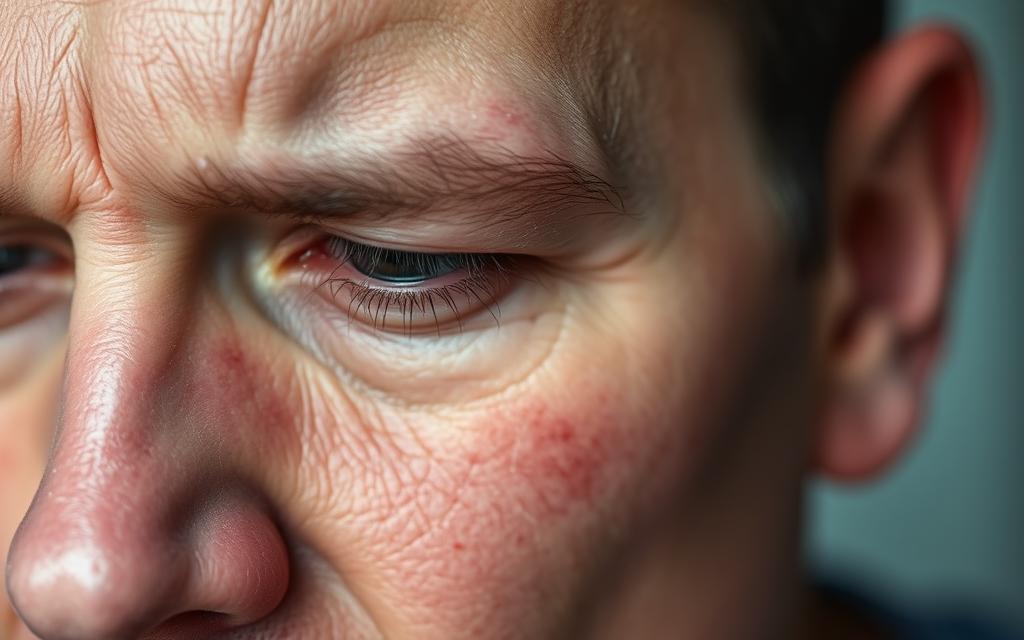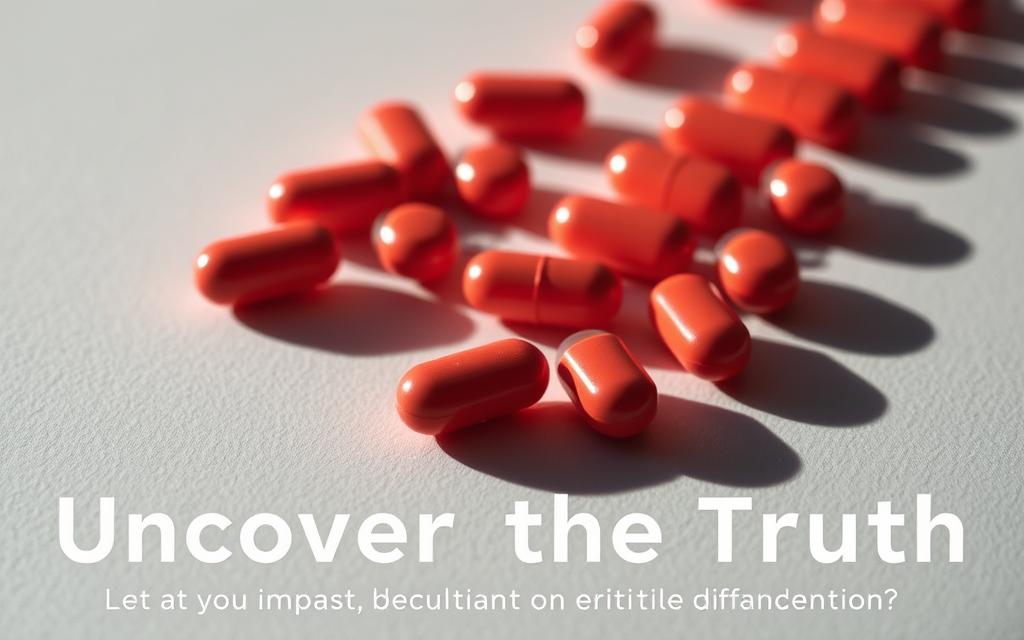Does Minoxidil Pills Cause Erectile Dysfunction? Uncover the Truth
Minoxidil pills have been a topic of interest for those seeking to address hair loss. However, concerns have been raised regarding their potential impact on sexual health, particularly erectile dysfunction.
The relationship between minoxidil pills and erectile health is complex and not entirely understood. Some users have reported experiencing sexual side effects, sparking a debate about the safety of these pills.
This article aims to explore the available information and research on the topic, providing clarity on whether minoxidil pills can cause erectile issues and what this means for those considering or already using this medication.
Understanding Minoxidil: Uses and Common Side Effects
To grasp the implications of minoxidil on erectile dysfunction, we first need to understand what minoxidil is and how it’s used. Minoxidil is a medication that has been widely used for treating hair loss and hypertension.
What is Minoxidil and How Does it Work?
Minoxidil works by widening blood vessels, which can help in improving hair growth by increasing blood flow to the scalp. It is available in different forms, including topical solutions and oral pills.
Oral vs. Topical Minoxidil: Key Differences
The primary difference between oral and topical minoxidil lies in their application method and systemic absorption. Topical minoxidil is applied directly to the scalp, whereas oral minoxidil is taken by mouth and absorbed systemically.
- Oral minoxidil may have a more systemic effect due to its absorption into the bloodstream.
- Topical minoxidil is generally considered safer with fewer systemic side effects.
FDA-Approved Uses and Off-Label Applications
Minoxidil is FDA-approved for treating androgenetic alopecia (pattern baldness) and hypertension (in its oral form). However, it is also used off-label for other conditions, including hair loss due to various causes.

Common side effects of minoxidil include itching, redness, and dryness of the scalp for topical applications. Oral minoxidil can have more systemic side effects due to its broader absorption.
Minoxidil and Sexual Health: Examining the Evidence
Minoxidil, a popular hair loss treatment, has raised concerns regarding its impact on sexual health. As its use continues to be widespread, understanding its effects on erectile function and overall sexual well-being is crucial.
Clinical Studies on Minoxidil and Erectile Function
Several clinical studies have investigated the relationship between minoxidil use and erectile function. A comprehensive review of these studies is essential to understand the potential risks.
Research indicates that oral minoxidil may have a different impact compared to topical applications. For instance, a study published in the Journal of Clinical Hypertension found that oral minoxidil can cause changes in blood pressure, which might indirectly affect erectile function.

Reported Cases of Sexual Side Effects
There have been reported cases of sexual side effects associated with minoxidil use, although these are relatively rare. Further investigation into these cases reveals that the majority involve oral minoxidil rather than topical applications.
Mechanism of Action: How Minoxidil Could Potentially Affect Sexual Function
Minoxidil works by widening blood vessels, which can improve hair growth. However, this vasodilation effect could potentially influence erectile function. Understanding the mechanism of action is key to assessing the likelihood of sexual side effects.
Expert Opinions on the Connection
Experts in the field have varying opinions on the connection between minoxidil and sexual health. Some argue that the benefits of minoxidil for hair loss treatment outweigh the potential risks, while others recommend caution, particularly for individuals with pre-existing sexual health issues.
| Study | Form of Minoxidil | Reported Sexual Side Effects |
|---|---|---|
| Journal of Clinical Hypertension | Oral | Changes in blood pressure potentially affecting erectile function |
| Dermatology Research and Practice | Topical | Rare reports of sexual dysfunction |
| European Journal of Dermatology | Oral | Priapism reported in a few cases |
Alternative Hair Loss Treatments for Those Concerned About ED
Exploring alternative hair loss treatments can provide peace of mind for those concerned about the potential sexual side effects associated with minoxidil. For individuals experiencing hair loss, there are several options available that may mitigate the risk of erectile dysfunction.
FDA-Approved Alternatives to Minoxidil
One of the most common FDA-approved alternatives is finasteride, known for its effectiveness in treating male pattern baldness. However, it’s crucial to note that finasteride has also been linked to potential sexual side effects, as discussed in the article on whether finasteride causes erectile dysfunction. Other alternatives include low-level laser therapy (LLLT) devices, which are FDA-cleared for promoting hair growth.
Natural and Supplemental Approaches
Some individuals prefer natural and supplemental approaches for hair loss treatment. These include saw palmetto, biotin supplements, and rosemary essential oil. While these alternatives may have fewer side effects, their efficacy can vary, and it’s essential to consult with a healthcare professional before starting any new supplements.
Comparing Safety Profiles for Sexual Health
| Treatment | Potential Impact on Sexual Health |
|---|---|
| Minoxidil | Rarely associated with sexual side effects |
| Finasteride | Linked to potential sexual side effects |
| LLLT Devices | No known significant sexual side effects |
| Natural/Supplemental Approaches | Generally considered safe for sexual health |
When considering alternative hair loss treatments, it’s essential to weigh the potential benefits against the risks, particularly regarding sexual health. Consulting with a healthcare professional can help individuals make informed decisions about their hair loss treatment.
Death Grip Erectile Dysfunction Cure Treatment: Comprehensive Guide
Understanding death grip syndrome is crucial for addressing its potential role in erectile dysfunction and exploring effective treatment strategies. Death grip syndrome, a condition characterized by an intense gripping or holding during masturbation, has been linked to erectile dysfunction in some cases.
Understanding Death Grip Syndrome: Causes and Symptoms
Death grip syndrome is often associated with aggressive or vigorous masturbation techniques. The exact causes are not fully understood, but it is believed that repetitive strain or pressure on the penis during masturbation may contribute to the development of erectile dysfunction.
Symptoms may include difficulty achieving or maintaining an erection, and in some cases, it may be accompanied by pain or discomfort during erection or ejaculation.
Behavioral Modifications and Retraining Techniques
One of the primary approaches to addressing death grip syndrome involves modifying masturbation techniques. This can include adopting gentler methods and avoiding excessive gripping or pressure.
- Reducing frequency or intensity of masturbation
- Avoiding certain positions that may cause strain
- Using lubrication to reduce friction
Professional Treatment Options
For individuals experiencing persistent erectile dysfunction potentially linked to death grip syndrome, professional treatment options are available.
Physical Therapy Approaches
Physical therapy can play a crucial role in treating erectile dysfunction by addressing underlying physical issues.
| Therapy Type | Description | Benefits |
|---|---|---|
| Pelvic Floor Therapy | Targets the muscles supporting erectile function | Improves muscle strength and control |
| Penile Rehabilitation | Aims to restore normal erectile function | Enhances blood flow and erectile health |
Psychological Interventions
Psychological factors often contribute to erectile dysfunction. Counseling or therapy can help address these underlying issues.
- Cognitive Behavioral Therapy (CBT) to address negative thought patterns
- Sex therapy to improve communication and intimacy
Recovery Timeline and Success Rates
The recovery timeline for erectile dysfunction related to death grip syndrome can vary significantly among individuals. Success rates depend on the underlying causes, the effectiveness of the chosen treatment, and individual commitment to therapy.
Key factors influencing recovery include: the severity of the condition, the timeliness and appropriateness of treatment, and the individual’s overall health and well-being.
Conclusion: Balancing Hair Loss Treatment and Sexual Health
Balancing hair loss treatment with sexual health is crucial for overall well-being. The relationship between minoxidil and erectile dysfunction has been a topic of concern for many individuals seeking hair loss solutions.
After examining the evidence, it appears that the link between minoxidil pills and erectile dysfunction is not conclusively established. However, individuals experiencing sexual side effects may want to explore alternative hair loss treatments that prioritize sexual health.
Options such as FDA-approved alternatives and natural supplements can provide a more comprehensive approach to addressing hair loss while minimizing potential risks to sexual health. By understanding the available choices and their implications, individuals can make informed decisions about their treatment.
Ultimately, achieving a balance between hair loss treatment and sexual health requires careful consideration and consultation with healthcare professionals. By prioritizing overall health and exploring available options, individuals can find effective solutions that meet their needs.
